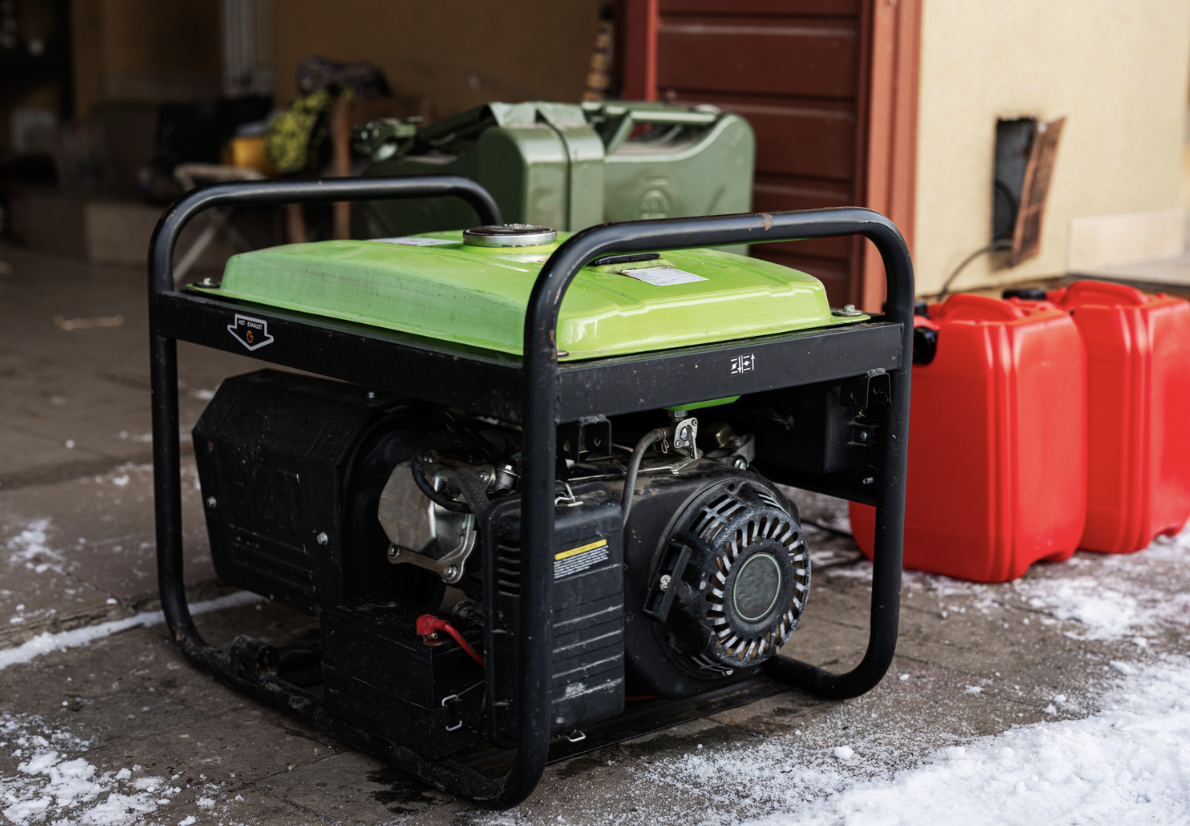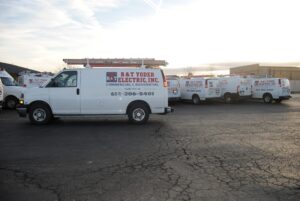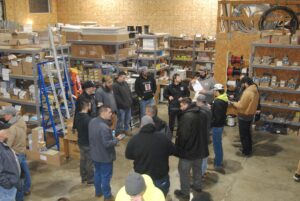
A backup generator is an invaluable addition to any home, providing a reliable power source during outages and ensuring essential systems remain operational. Installing a backup generator is not only about convenience but also plays a vital role in home electrical safety. Power outages, whether caused by storms, grid failures, or maintenance issues, can disrupt daily routines, damage appliances, and put home safety at risk. A backup generator offers peace of mind, protecting your home from these disruptions while adding value and appeal. Here, we explore the top 10 benefits of backup generator installation and how it can enhance both your lifestyle and your home’s resilience.
1. Uninterrupted Power Supply During Outages
One of the primary benefits of installing a backup generator is maintaining power during outages. Whether due to storms, grid failures, or routine maintenance, power interruptions can disrupt daily life, affecting lighting, heating, and vital appliances. With a generator, essential systems remain functional, so you can avoid the inconvenience of sudden blackouts.
2. Enhanced Home Electrical Safety
During power outages, homeowners often resort to candles, flashlights, or portable heaters, which can pose safety risks. Backup generator installation improves home electrical safety by ensuring that lights, alarm systems, and other essential appliances stay on. Additionally, a generator prevents power surges that can damage electrical systems and appliances when power is restored.
3. Preventing Food Spoilage
A prolonged power outage can result in the loss of refrigerated and frozen food, leading to significant waste and expense. Backup generators keep refrigerators and freezers running, maintaining a stable temperature and preserving food until power is restored. This benefit is particularly important in areas prone to frequent or extended outages.
4. Keeping Heating and Cooling Systems Operational
Heating and cooling systems are essential for maintaining a comfortable home environment, especially during extreme weather. Power outages in winter can lead to dangerously cold indoor temperatures, while summer outages can create stifling heat. A backup generator ensures that HVAC systems remain operational, providing a safe and comfortable environment regardless of outdoor conditions.
5. Supporting Home Office and Remote Work Needs
For those who work from home, power outages can disrupt productivity and connectivity. With a backup generator, computers, internet routers, and essential office equipment remain functional, minimizing downtime and helping you maintain professional commitments even during outages. A reliable power source is a must-have for remote work, ensuring continuity and productivity.
6. Protecting Home Security Systems
Power outages can leave your home vulnerable by disabling security systems, cameras, and alarms. Backup generator installation helps maintain home electrical safety by keeping security systems operational during outages, providing ongoing surveillance and peace of mind. With a backup generator, you’re protected from potential security breaches that might occur when systems go offline.
7. Ensuring Water Supply in Homes with Well Pumps
For homes that rely on well water, a power outage can interrupt the water supply since pumps require electricity to function. A backup generator ensures the continuous operation of well pumps, providing a steady water supply for drinking, cooking, and sanitation needs during outages. This benefit is particularly valuable in rural areas where municipal water supply isn’t available.
8. Increasing Home Value and Market Appeal
Backup generators are a valuable selling point for potential homebuyers, especially in areas prone to power outages. Installing a backup generator can increase your property’s value and market appeal, as buyers appreciate the added security and convenience. This investment not only benefits you as a current homeowner but can also provide a return on investment if you decide to sell.
9. Reducing Risk of Frozen Pipes and Water Damage
In cold climates, power outages during winter can lead to frozen pipes, which may burst and cause extensive water damage. A backup generator keeps heating systems operational, maintaining indoor temperatures that prevent pipes from freezing. This added layer of protection preserves your plumbing system and prevents costly repairs associated with water damage.
10. Convenience and Peace of Mind
Perhaps the most significant benefit of backup generator installation is the peace of mind it provides. Knowing that your home is protected from power outages and that essential systems will remain functional brings comfort and reduces stress. Whether you’re at home or away, a generator offers reliable backup power so you can rest easy, regardless of the weather or grid conditions.
Types of Backup Generators
Standby Generators
Standby generators are permanently installed units that automatically activate when a power outage is detected. They’re powered by natural gas or propane and are designed to supply power to the entire home. Standby generators are an excellent choice for homeowners seeking seamless operation and full-home coverage during outages.
Portable Generators
Portable generators are smaller units that provide temporary power. They require manual setup and fuel, typically gasoline or propane. Portable generators are a cost-effective choice for powering a few essential appliances, although they lack the automatic activation and whole-home coverage of standby models.
Inverter Generators
Inverter generators are compact, fuel-efficient units that produce clean, stable power, making them ideal for sensitive electronics. Although they’re generally limited to smaller loads, inverter generators are quieter and more efficient than traditional portable models, offering reliable power in smaller homes or for specific needs.
What to Consider Before Installing a Backup Generator
Determining Power Needs
To choose the right generator, it’s essential to assess your power requirements. Make a list of essential systems and appliances, such as refrigerators, HVAC units, and lighting, to estimate the wattage needed. This will help you select a generator that provides adequate power for your home’s needs.
Selecting a Fuel Source
Backup generators can be powered by various fuel types, including natural gas, propane, gasoline, and diesel. Consider which fuel sources are readily available in your area and the pros and cons of each. Natural gas and propane are common for standby generators, while portable models typically use gasoline or propane.
Professional Installation
Proper installation is essential for ensuring generator performance and safety. Hiring a licensed electrician or generator installation professional is recommended, as they can assess the best location, handle necessary permits, and ensure compliance with local building codes.
Maintenance Tips for a Long-Lasting Backup Generator
Routine Inspections
Regularly inspect your generator for signs of wear, corrosion, or damage. Checking the fuel line, battery, and oil levels ensures that the generator is ready to function when needed. Routine inspections can identify minor issues before they develop into significant problems.
Schedule Professional Servicing
Annual servicing by a professional can help keep your generator in optimal condition. Professionals can test system components, replace worn parts, and perform necessary adjustments to ensure peak performance. Regular maintenance is essential for extending the lifespan of your generator.
Running the Generator Periodically
Running the generator periodically, even when not in use, helps keep the engine lubricated and prevents the battery from discharging. Many standby generators have a self-testing feature that automatically runs the unit once a week, ensuring it’s always ready to operate in an emergency.
Fuel Storage and Management
If you have a generator that requires gasoline, propane, or diesel, proper fuel storage is essential. Keep fuel in approved containers and store it in a safe, accessible location. Regularly rotate stored fuel to ensure it remains fresh, and consider using fuel stabilizers to prolong its shelf life.
Conclusion: Is a Backup Generator Right for You?
Backup generator installation offers numerous benefits for home electrical safety, comfort, and security, especially in areas prone to frequent outages. From maintaining essential home systems to enhancing property value, a backup generator is a valuable investment that provides peace of mind. With various options available, you can choose a model that meets your power needs and budget, ensuring that your home remains resilient and protected.
Frequently Asked Questions
How does a backup generator enhance home safety?
A backup generator ensures critical systems, like lighting, heating, and security, remain functional during power outages. This protects against hazards associated with power loss, such as darkened hallways, inactive security systems, and frozen pipes during winter, adding another layer of safety for your family.
What’s the difference between a standby and portable generator?
Standby generators are permanently installed, automatically activating during outages and providing full-home coverage without manual intervention. Portable generators require manual setup, are often fueled by gasoline or propane, and are ideal for powering essential appliances or specific areas only.
Does installing a backup generator increase home value?
Yes, backup generators are an attractive feature for potential buyers, especially in outage-prone areas, as they provide added reliability and convenience. This investment enhances home value and improves market appeal by offering prospective buyers a home with ready-to-go power backup.
How often should I service my generator?
Annual professional servicing is recommended to ensure the generator remains in peak condition, along with periodic self-checks. Routine maintenance prevents unexpected issues, helping extend the lifespan of your generator and ensuring it’s always ready to run in an emergency.
What fuel type is best for a home generator?
Common fuel options include natural gas, propane, gasoline, and diesel. The choice depends on availability, convenience, and the generator model. Natural gas and propane are popular choices for standby units due to their consistent supply, while gasoline and diesel are typical for portable models.







